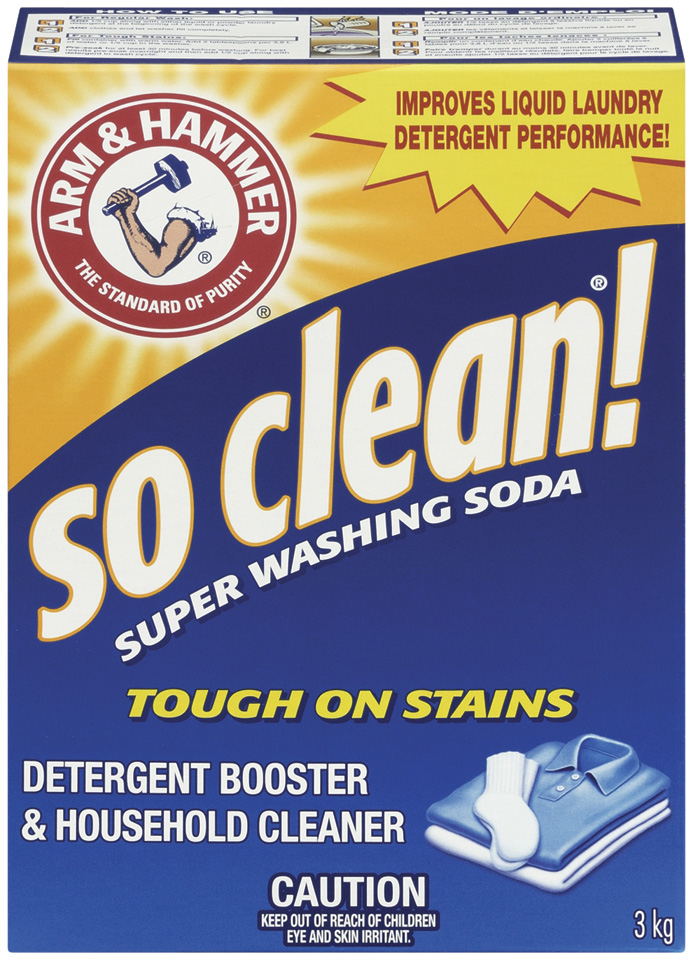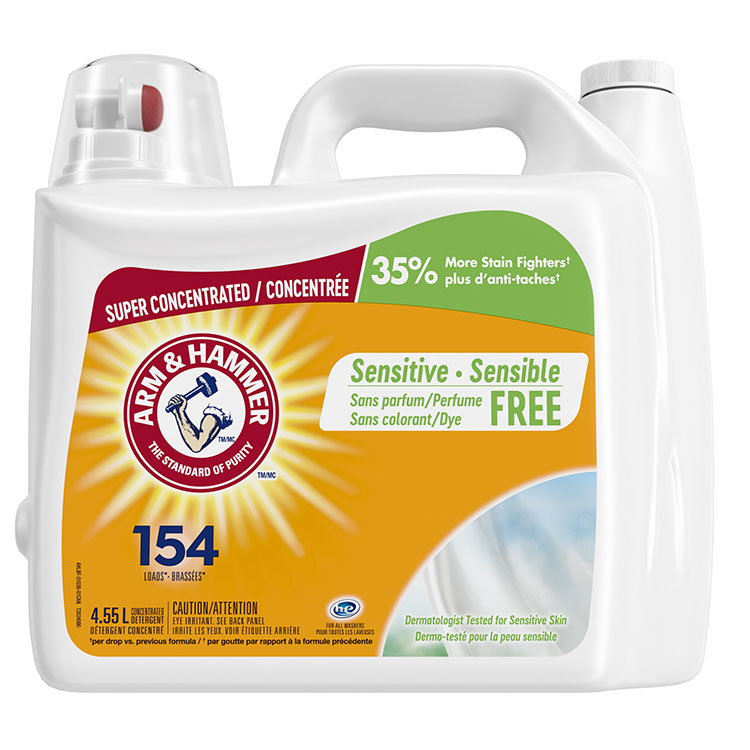Clothing (not to mention items like bedding and towels) is in contact with your skin 24 hours a day. Since many detergents have dyes and fragrances that can trigger reactions in people with sensitive skin, the laundry products you use can make a difference.
Switch to a laundry detergent that’s specifically formulated for sensitive skin. ARM & HAMMER™has a line of sensitive skin laundry detergents that are dermatologist-tested, and deliver baking soda freshness for powerful yet gentle cleaning, like ARM & HAMMER™ Essentials Sensitive Skin Free and ARM & HAMMER™ Sensitive Skin Plus Scent, with a crisp hypoallergenic fresh scent.


